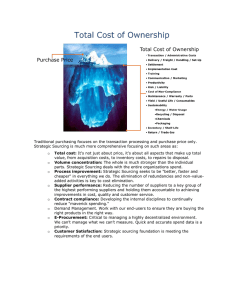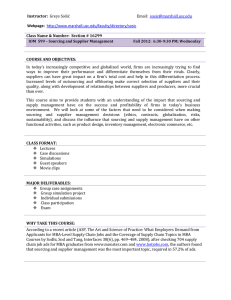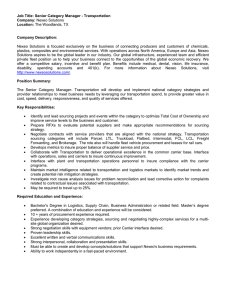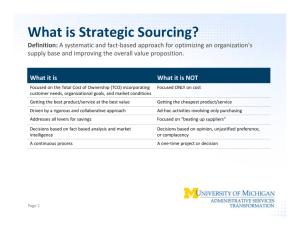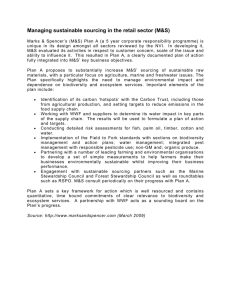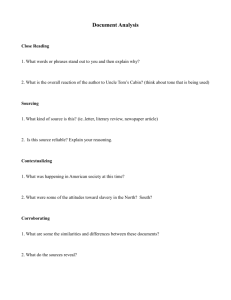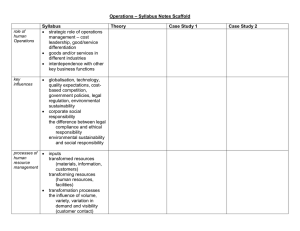RESEARCH AT CRANFIELD SCHOOL OF MANAGEMENT
advertisement
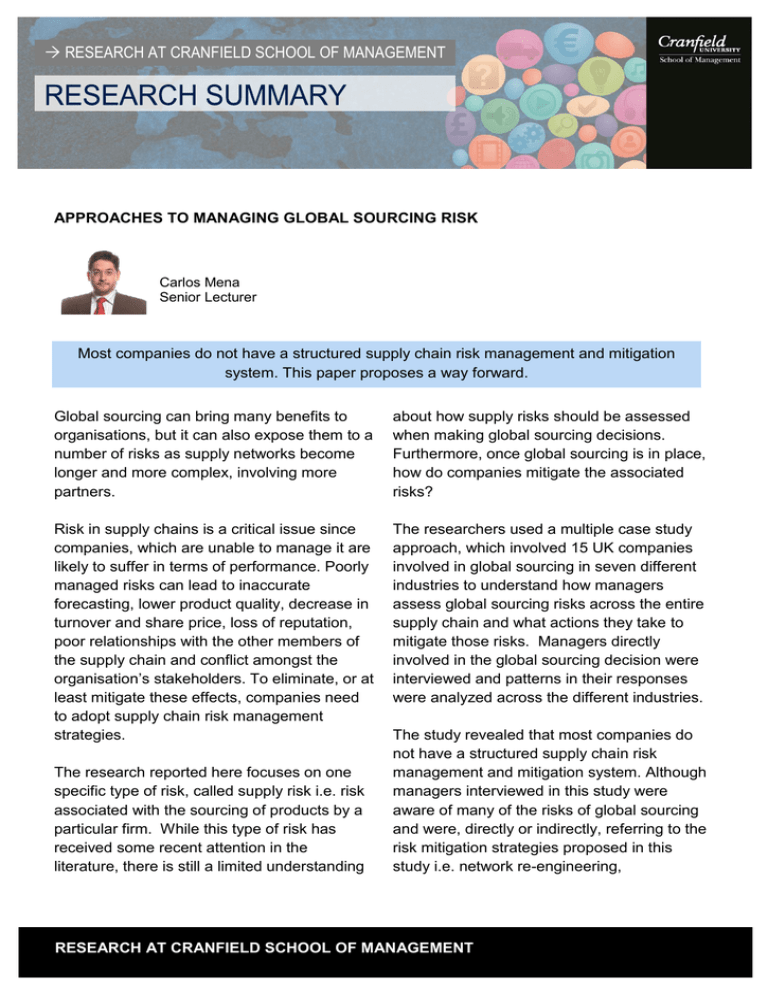
RESEARCH AT CRANFIELD SCHOOL OF MANAGEMENT APPROACHES TO MANAGING GLOBAL SOURCING RISK Carlos Mena Senior Lecturer Most companies do not have a structured supply chain risk management and mitigation system. This paper proposes a way forward. Global sourcing can bring many benefits to organisations, but it can also expose them to a number of risks as supply networks become longer and more complex, involving more partners. about how supply risks should be assessed when making global sourcing decisions. Furthermore, once global sourcing is in place, how do companies mitigate the associated risks? Risk in supply chains is a critical issue since companies, which are unable to manage it are likely to suffer in terms of performance. Poorly managed risks can lead to inaccurate forecasting, lower product quality, decrease in turnover and share price, loss of reputation, poor relationships with the other members of the supply chain and conflict amongst the organisation’s stakeholders. To eliminate, or at least mitigate these effects, companies need to adopt supply chain risk management strategies. The researchers used a multiple case study approach, which involved 15 UK companies involved in global sourcing in seven different industries to understand how managers assess global sourcing risks across the entire supply chain and what actions they take to mitigate those risks. Managers directly involved in the global sourcing decision were interviewed and patterns in their responses were analyzed across the different industries. The research reported here focuses on one specific type of risk, called supply risk i.e. risk associated with the sourcing of products by a particular firm. While this type of risk has received some recent attention in the literature, there is still a limited understanding The study revealed that most companies do not have a structured supply chain risk management and mitigation system. Although managers interviewed in this study were aware of many of the risks of global sourcing and were, directly or indirectly, referring to the risk mitigation strategies proposed in this study i.e. network re-engineering, RESEARCH AT CRANFIELD SCHOOL OF MANAGEMENT collaboration, agility and a risk management culture, they were not implementing them systematically and holistically. Nevertheless they do use a number of informal approaches to cope with risk. Additionally, the research showed a high variability of practices between firms, indicating a wide gap between the top performers and the laggards. This suggests that there are still many opportunities for firms to improve their approach to making global sourcing decisions. Organisations could use the framework proposed in this study to review their current strategies for managing global sourcing risk and to devise future strategies that are more comprehensive and robust. For further details on this research paper please contact: carlos.mena@cranfield.ac.uk WATCH THE VIDEO INTERVIEW http://tinyurl.com/btyddpq The paper proposes that a multidisciplinary approach is required when dealing with global sourcing risks and presents a classification of risks covering four categories: supply risk, process and control risks, environmental and sustainability risks, and demand risks. The study also proposes four generic strategies for managing global sourcing risk: network reengineering, collaboration, agility and a risk management culture. Christopher, M., Mena, C., Khan, O. & Yurt, O. (2011) Approaches to Managing Global Sourcing Risk, Supply Chain Management: An International Journal, vol. 16, no. 2, pp. 67-81 Management Theme: Supply Chain and Logistics Management MANAGEMENT THEMES AT CRANFIELD SCHOOL OF MANAGEMENT Business Economics and Finance Business Performance Management Corporate Responsibility and Sustainability Entrepreneurship and Business Growth General Management Information Systems Innovation and Operations Management Leadership Managing People and Global Careers Marketing, Sales and Client Relationships Programme and Project Management Strategy, Complexity and Change Management Supply Chain and Logistics Management
